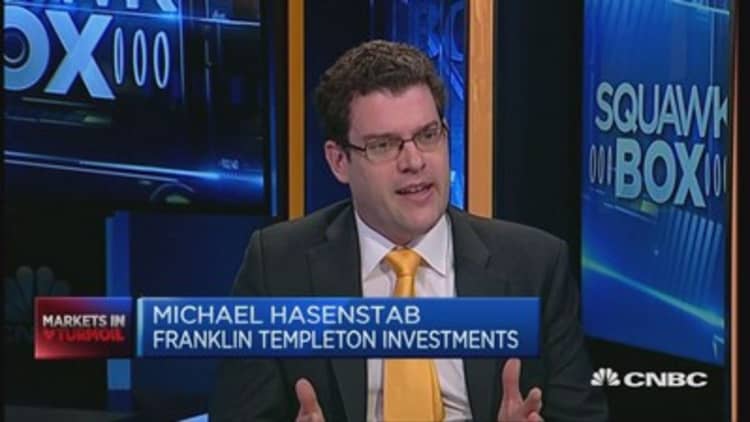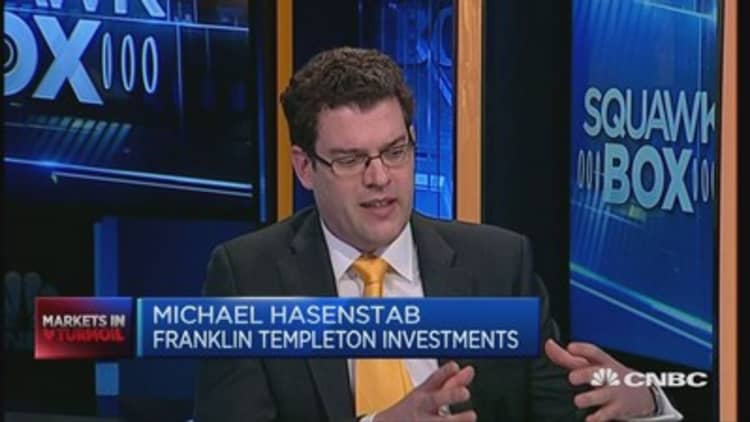

Markets are pricing in an economic collapse in emerging markets and that's a buying opportunity, Templeton Global Macro's influential chief investment officer Michael Hasenstab told CNBC.
"This is one of those once-in-a-decade periods where there's mass panic-selling," Hasenstab told Squawkbox.
"We have blown through the lows of the Global Financial Crisis, we've blown through the lows of the Asian Financial Crisis [and] the Tequila Crisis. And it's true things are slowing. The global economy is slowing. But it's not this collapse."
Emerging markets assets have tumbled since the start of the year, with China entering a "bear within a bear" territory.The Shanghai Composite is down more than 20 percent from its December high, as well as trading down more than 40 percent from its 52-week high set in June of last year.
"I have never seen people more pessimistic on an asset class than emerging markets," Hasenstab said.
Emerging markets have certainly been unloved: about $74 billion flowed out of global emerging market equity funds in 2015, up from $25 billion in outflows in 2014, according to data from JPMorgan. Asian emerging markets bore the brunt of the exit; $39 billion flowed out of Asia ex-Japan equity funds last year, the data showed.
As of last week's close, the MSCI Emerging Markets Asia index was trading at 10.8 times 2016 earnings, while emerging Europe is trading at 6.2 times, according to data from Credit Suisse. More broadly, the MSCI Emerging Markets index is at 10.4 times 2016 earnings, the data show.
"The market is pricing in a complete implosion and the reality is it should just price in a slowdown. So there's good value out there if you have the patience and the staying power to hold to your convictions," Hasenstab said.
"But you're paid to wait, with valuations cheap and in some cases yields very high. If you just sit there and wait for a year, you're actually getting a nice return."
The MSCI Emerging Markets Free index, a free-float-adjusted index tracking global emerging markets, has a trailing dividend yield of 3.0 percent, above its five-year average of 2.7 percent, according to Credit Suisse data.
Templeton Global has scooped up shares in select countries, Hasenstab said, but he noted that not all emerging markets were created equal.
"The countries we're avoiding [are] places like Venezuela, places like Russia, Turkey, South Africa, where either there's an oil sensitivity that they can't escape or there's some policy challenges or structural problems in their country," he said.
"But places like Mexico, actually, they've had two series of governments that have actually changed parties and had total continuity of economic reform. They're now the largest auto exporter to the U.S. They're really well positioned yet they're getting blown up."
—By CNBC.Com's Leslie Shaffer; Follow her on Twitter @LeslieShaffer1




